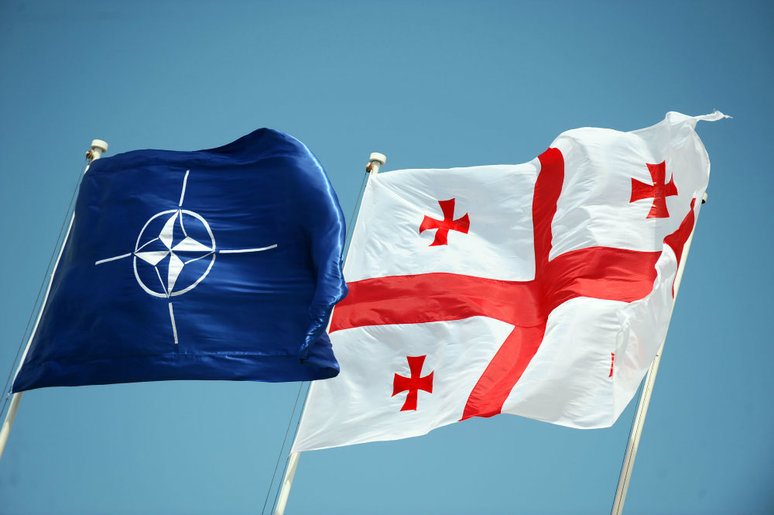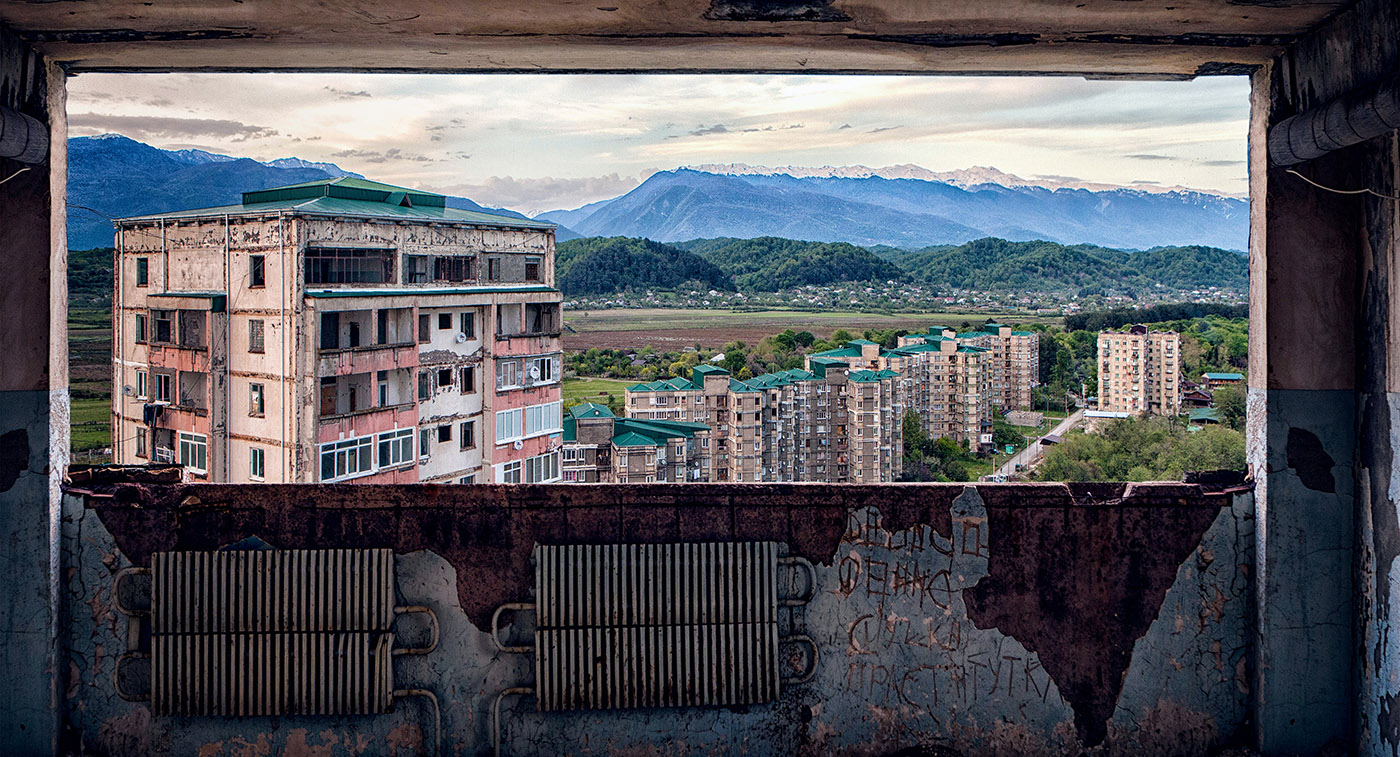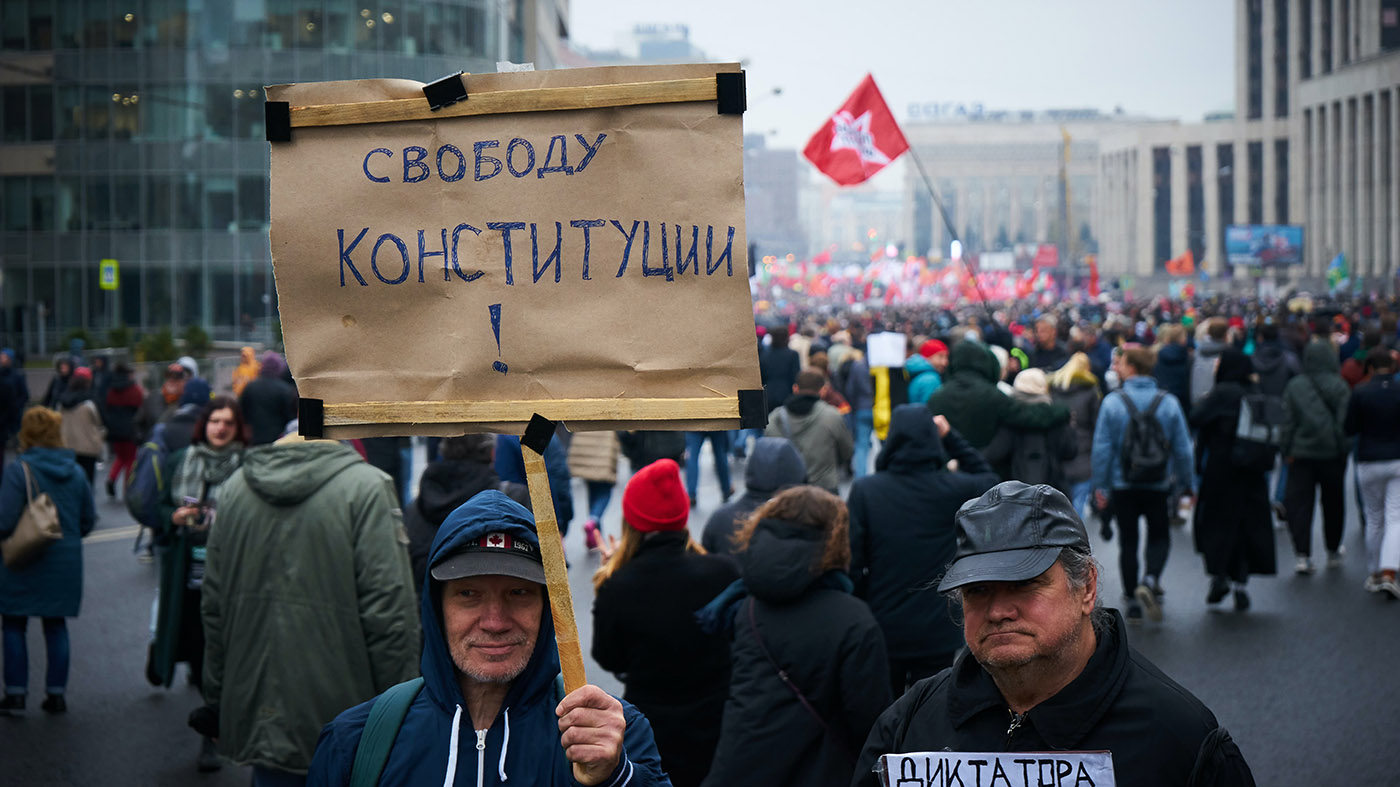Before I start describing Georgia as a country and a reform leader in its region — Georgia is, after all, a country recognized for its success on its path toward inclusion in the Euro- and Euro‑Atlantic family — I would like to pose to readers of this material the question whether you personally believe that Georgia is an important country for the West or not?
More specifically, I invite you to consider whether you believe that the West needs a strong, secure and reliable partner in the post‑Soviet space, a nation which seeks democratic development and closer ties with both the EU and the NATO? Whether Georgia may affect a successful transition from a post‑Soviet country to a full‑fledged democracy? Whether the West is ready to invest more to achieve this goal?
If your answer is yes to those questions, my next question is what strategy your country has adopted towards Georgia and the South Caucasus region, which is now filled with Russian military forces and other tools the Kremlin uses to put pressure on countries and societies
Russian soldiers are illegally deployed in Georgia (in occupied regions of Abkhazia and so‑called South Ossetia), Armenia (Russian military base) and Azerbaijan (so‑called peacekeeping mission, initiated in the aftermath of the Karabakh war).
If everyone who says “Yes” to Georgia will address the question I just asked, Georgia would have far greater prospects to become in the near term the “strong, pro‑democratic” ally the West seeks in the region. Such status will enable the country to further promote cooperation with the European and European‑Atlantic structures regionally.
So yes, Georgia is a regional reform leader even now, when Georgia’s democratic development is under great threat in the aftermath of the June 2020 protests and the October 2020 parliamentary elections. In Georgia, 80% of those surveyed choose integration with the EU, and 74% membership in NATO (according to NDI polls published in Jan 2021). This support is strong and consistent notwithstanding domestic political challenges and controversies, the Kremlin’s malign influence and propaganda campaigns, and Russian threats targeting Georgia’s Western aspirations. Yes, the Georgian people are fearful of the Kremlin and consider Putin’s Russia to be a main threat; moreover, 41% of surveyed Georgians believe that Russian military forces are stronger than the U.S. (according to NDI polls in 2018). However, Georgia is still the main non‑NATO contributor to the Resolute Support NATO mission in Afghanistan. NATO and EU flags are placed in any cabinet in Georgia’s capital Tbilisi.
Because the people of Georgia choose the West.
The question is does the West choose the people of Georgia?
Does the West really want to see Georgia as a democracy and a part of the European and Euro‑Atlantic family? Is the West really interested in development of the Anaklia deep‑sea port, which may not only become a frontier hub for logistics, financial and industrial activities at the crossroads of Europe and Asia, but a port where U.S. and NATO ships may operate if required? Does the West see the increase of the Kremlin’s military and political influence in the South Caucasus region as a problem?
If we give a positive answer to all those questions, the approach of the West towards Georgia and the South Caucasus region changes significantly. The South Caucasus region is going through a very difficult period, prompted by the Second Nagorno‑Karabakh War of 2020 and exacerbated by domestic political crises in Georgia and Armenia and the COVID‑19 pandemic. The Kremlin is actively using this period to put more pressure on regional countries. Its role in the Karabakh conflict and its aftermath significantly diminished the role of the West.
In 2021, regional communities are not discussing whether to choose between Putin’s Russia or democracy. They discuss whether Russia and Turkey will implement their regional strategies jointly or compete for influence in the Region. Neither of these scenarios promises anything good for the South Caucasus. Regional communities do not discuss NATO membership at all, since Vladimir Putin has effectively blocked NATO membership for Georgia -- such membership now nothing more than a dimming light at the end of a never‑ending tunnel.
When the Kremlin uses any crisis to undermine neighboring countries by increasing its military and political pressure, the West must approach the same situation by promoting its positive role and the benefits of democracy, and thereby spurring visibly successful cases by investing more time and resources in the post‑Soviet space. This will contribute to regional security and stability and promote a Western approach to development in Russia and other countries.
Yes, Georgia is best positioned of the countries in the post‑Soviet space to transition successfully from a post‑Soviet system to democracy. It is not big, its institutions are partly reformed, it is not greatly affected by corruption, and it experiences relatively fewer conflicts between various interest groups. Aggressive dictators do not rule it. So in parallel with the required increase of support to Ukraine, Belarus and Moldova, a successful story in Georgia can be written right away. To achieve this goal, the Western approach towards Georgia should be changed from “facilitation and assistance” to “patronage,” targeted explicitly to help Georgia advance its democracy and join the European and Euro‑Atlantic structures.
The best reason to initiate this format now is the Georgian government’s recently announced plan to join the EU in 2024. Considering the chaotic developments in Georgia, which we have observed for a few years already, this plan’s success is far from a given. To achieve this goal, the new patronage format should be adopted. This will require new EU and U.S. strategies towards Georgia, based on the proposed approach and taking fully into account Georgian internal factors, as well as the post‑Karabakh war situation on the ground.
The U.S. and EU should appoint Special Representatives on Georgia as a first symbolic and practical step toward re‑booting Georgian democracy. Such emissaries, working closely with the Georgian people, must address each challenge the country is facing to achieve long‑term sustainable success, which may bring Georgia closer to eligibility for admission to the EU and to the NATO. These special representatives, with a fresh view on situation and a mandate from their governments, should suggest new strategies, offer reforms, ensure the proper monitoring and evaluation of results achieved on the ground, control the funds, provided by the U.S. and EU taxpayers to Georgia, and suggest more efficient ways to speed up Georgia’s integration in Western institutions. Together with the Georgian people, they should insist upon the fulfillment of all requirements needed to re‑boot and further boost Georgian democracy. This format should be supported by weekly and monthly dialog platforms between Georgian, US and EU communities. It should also be supported by redirecting or investing more funds in the civil society sector and regional projects. Such investments should not go through the government, but should be provided directly to different NGOs and expert groups all around the country, which will work on development of a knowledge- and value‑based society resistant to manipulation and propaganda.
Georgian society already provides the mandate to the West for such measures, as evidenced by annual public opinion polling showing that the majority of surveyed Georgians choose NATO and the EU.
Georgians want to live in a democratic country, they want more association with the West, and they want freedom and transparency. 64% of surveyed Georgians support the placement of a U.S. military base in Georgia (according to Edison Research, Oct 2020). Any increase of positive engagement from the U.S. and EU sides will be very welcome. If any Georgian government is not ready to work harder together with the Western friends, the partners should inform the society about it immediately, so that the people may address this issue during elections. Free and fair elections should be safeguarded uncompromisingly by cooperation between a unified Georgian society and Western friends of Georgia.
Such patronage will require increased investment from the West, but it will result in long‑term success for Georgia and its people; it will help to promote democracy regionally and demonstrate that the West is ready to play a significant positive role in the post‑Soviet space, whereas Russia and Turkey are seeking for further expansion. The key issue is permanent attention to Georgia’s development on behalf of appointed representatives and their teams until the moment when all major spheres are reformed and rule of law is ensured.
Georgia today finds itself at a crossroads between the path of Western democratic development and its Soviet and post‑Soviet elites. But I would like to ask readers of this material, whether you personally believe that Georgia is an important country for the West or not?





